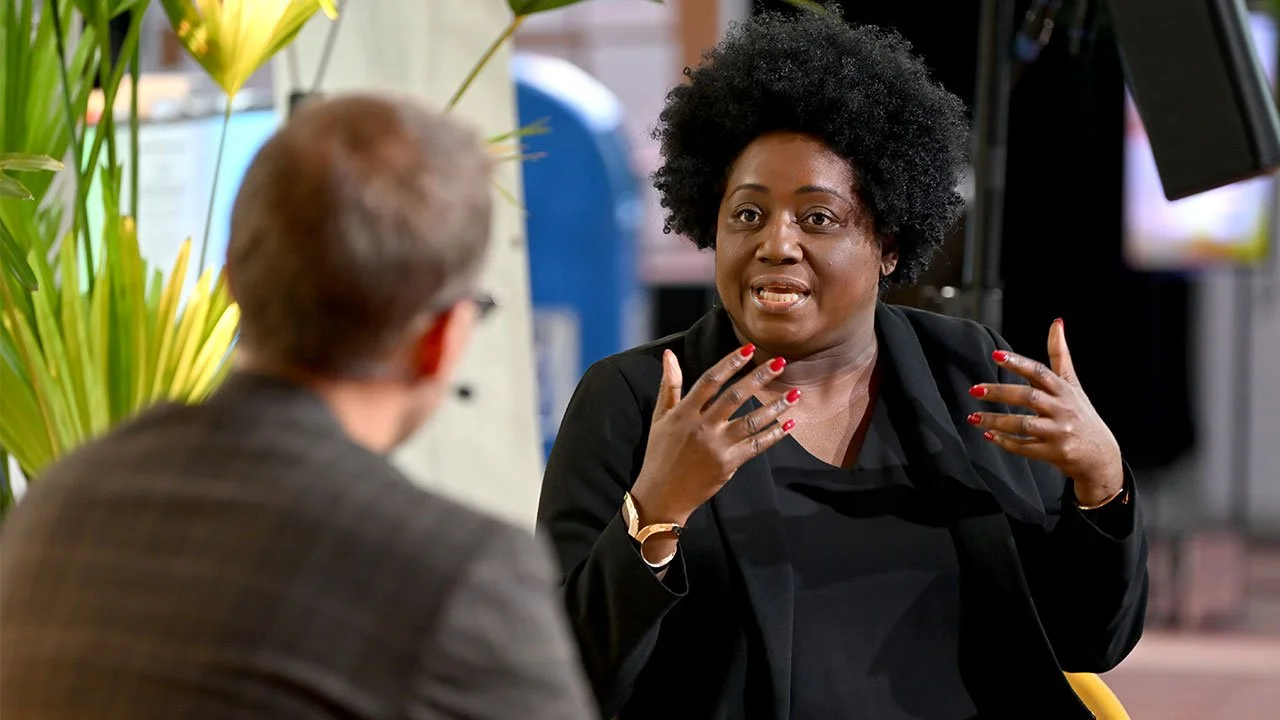All Tech Is Human Library Podcast Series #5 | Renée Cummings
In the fifth conversation of a sixteen-part All Tech is Human Library Podcast interview series, criminologist, AI ethicist, and data activist in residence at the University of Virginia, Renée Cummings, joins David Ryan Polgar for a conversation about the role of a data activist. Cummings discusses how we can use data to build systems that promote sharing of resources and equitable futures and shares her vision of a better tech future. Check out the full podcast series here.
About Renée Cummings
Renée Cummings joined the School of Data Science at the University of Virginia in 2020 as the School’s first Data Activist in Residence. She is a Criminologist, Criminal Psychologist, Artificial Intelligence Ethicist, Therapeutic Jurisprudence Specialist, and Urban Technologist. Her areas of research interests include artificial intelligence, political science, and criminology. She studies the impact of artificial intelligence on criminal justice, specifically in communities of color and incarcerated populations.
In her work as a Criminologist, Cummings founded Criminal Justice Intelligence Inc., which works with governments in the Caribbean to strengthen crime prevention, incorporate new technologies in existing crime prevention strategies, and develop behavior and hardware strategies that interlink to reduce vulnerabilities and tailor more proactive approaches to crime control and crime reduction. Cummings also founded Urban AI and is an East Coast Regional Leader for Women in AI Ethics. In her time in New York City, Cummings brought her expertise to train police officers and law enforcement agents to decrease homicides and gun and gang violence.
Key Takeaways
Rather than use historical data to project the past on our future, we must use data to build a future aligned with the public interest and incorporate consciousness, empowerment, equality, and justice into our practices.
The future of data science looks like interdisciplinary teams committing to a holistic, ethical approach when creating and deploying data-driven technologies that significantly impact one’s opportunities and trajectory in life.
When we look to straighten the path of our data-driven future, we should uplift and reduce harm to high-needs, vulnerable, and underserved communities, while simultaneously acknowledging their stakeholder status in the knowledge produced from data.
Quotes
“So if we are to think about the power of data, and if we are to think about how data is at this moment traumatizing and undermining communities, then what we need would be stretching of the imagination of the data scientists, bringing in different kinds of consciousness and understanding, and a perspective that looks at ways in which we can really use data to empower. We can really use data to build futures where there are equitable legacies, where there's open access, where there's a sharing of resources, and where there just is an approach to the future that is so inclusive that we can celebrate diversity and we could understand it's just not only about taking an ethical perspective, but understanding that for us to move forward with data, we've got to take a perspective rooted in justice.” 4:55 - 5:55
“And if we continue to use historical data to build a future, it means our future is looking like our past. And that is what we've been seeing with much of data science. So this is why interdisciplinary thinking is so critical. This is why we need criminologists and psychologists and educators and attorneys and social scientists, all a part of that dynamic because we cannot build futures in a vacuum. Data scientists are not the only ones responsible for building data futures. What is required would be all. In that conversation, participating and bringing various levels of knowledge and various levels of diversity into that space.” 6:48 - 7:37
“We have seen how algorithms are undermining our justice system, how algorithms are making the justice system inequitable or even further inequitable for persons of color, black and brown individuals. We have seen in the juvenile justice system, the deployment of algorithms that are really making it more difficult for young people to change the trajectory of their lives…[data science] is a space in which you can really co-create in a way that lifts people up and in a way that can course correct many of the things that we have done inaccurately or incorrectly historically. So now we can use this science to build this better future that we continue to speak about.” 9:14 - 10:08
“For [my better tech future], that world would look like using data to reduce pain and sadness and hurt and trauma because the world doesn't need any more of that. But what we do need would be an inclusive and equitable and justice-oriented future where people can get up every day and know that they belong and they are making a contribution that is going to be respected, celebrated, valued, and they are definitely going to be considered as someone worthy of this life as well.” 15:24 - 18:00
Learn More About Renée Cummings
LinkedIn | Twitter
Credits:
David Ryan Polgar - Moderator
Renée Cummings - Interviewee
Unfinished Live - Producers



